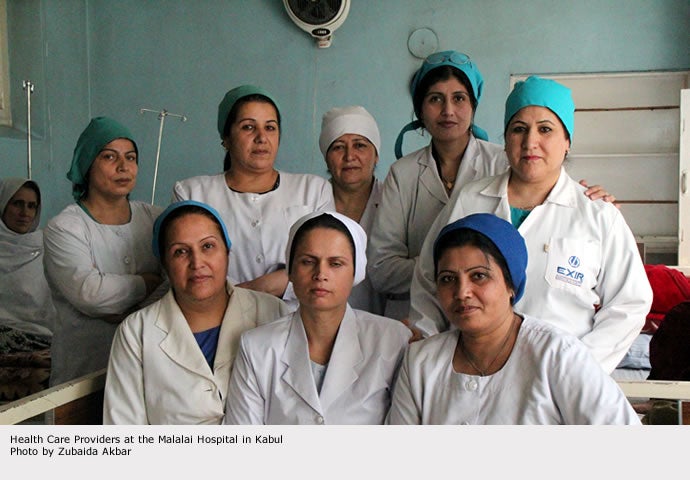
Despite the many challenges faced every day by women in Afghanistan, fewer are now dying during pregnancy and childbirth also in Afghanistan. This positive trend confirms the global one reported by the Trends Maternal Mortality estimates recently released by WHO, Unicef, UNFPA and The World Bank.
Globally, an estimated 287 000 maternal deaths occurred in 2010, a decline of 47% from levels in 1990. In Afghanistan, as reported by the Afghanistan Mortality Survey 2010, the maternal mortality ratio in the country is 327 deaths to women per 100,000 live births, much lower than previously believed.
There are multiple programmes being implemented that are contributing to this improvement, but there is much work yet to be done and more reliable data are needed.
Data on maternal mortality is difficult to collect in any country but particularly challenging in Afghanistan because insecurity prevents access to data, severe terrain, lack of transportation infrastructure and weather conditions makes many communities very hard to reach, cultural factors prevent women from having the freedom to fully discuss certain topics and cultural factors that define death in different ways (ie, the death of an infant within the first 40 days is not typically recorded by families or communities) create uncertainty on the data currently available.
Until the AMS 2010, there has never been a national survey that provides a baseline on maternal mortality. The previously conducted Ramos Study (2002) was not representative as it only covered 4 districts. It is expected that the AMS 2010 will serve as a baseline for future national studies on maternal mortality, like for example, theAfghanistan Multiple Indicator Cluster Survey (MICS) 2010/11.


